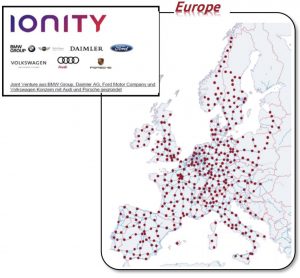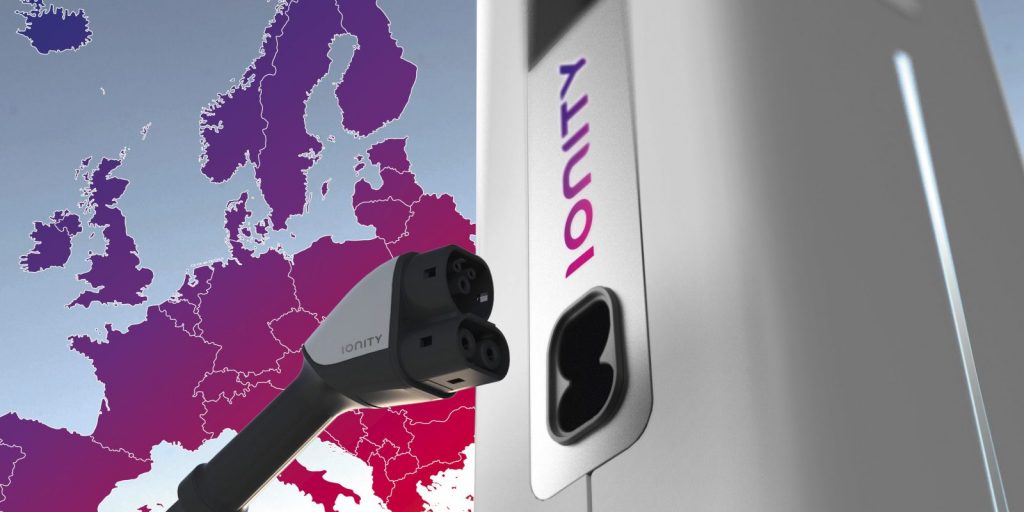On November, 2017, a group of automakers announced an ambitious initiative to create a pan-European High-Power-Charging (HPC) Network for electric vehicles. IONITY would be the instrument to do so, as a joint venture participated by BMW AG, Daimler AG, Ford Motor Co, and Volkswagen.
By the end of the year , 20 ultra-fast electric car charging stations where settled in Germany, Austria and Norway, at intervals of 120 km. Due to the high cost of each one of those stations (estimated to be around 200.000 Euros), the company decided to engage in a partnership with the German company Autobahn Tank & Rast, the international chain Circle K and the oil companies Shell and OMV. Between the objectives of the company was also stated that by 2020 the goal would be to implement 400 of these stations all along Europe.
Early in the month, Audi (which belongs to Volkswagen) made public during a conference in Oslo how the final network will look like once is completed:

The German company also added that stations will be installed along highways, focusing on long-distance travel, and the capacity would move between 150 kW (which should be an adequate capacity for the electric vehicles’ charge rate coming to market by that time) and their original aspiration of 350kW.
IONITY’s initiative and progress is excellent news for the establishment of an adequate framework where electric cars can actually flourish on the European market. The increase on the number of existing stations, and the competence with other companies like Tesla and its Supercharger network, can only contribute to lift up both market and industry.
Official site: http://www.ionity.eu/ionity-en.html



